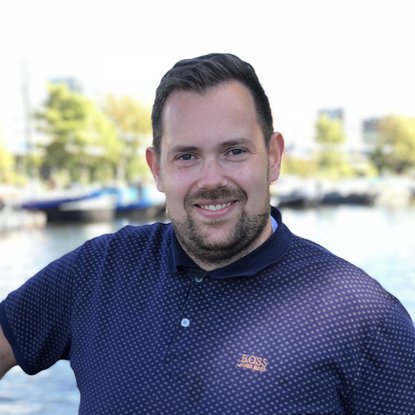Smart Urban Mobility plays an important role in future urban developments to keep the city of Amsterdam livable and accessible. Over the past few years there has been a shift in the field of mobility, moving away from building new infrastructure, to optimizing the performance of existing infrastructure. With the increased availability of mobility data, real-time traffic data and the full-scale adoption of digital technologies, cities are increasingly experimenting with digital mobility management tools, to improve the city’s mobility, enhance mobility flows and repurpose the public space.
Research on transport preferences shows that the citizens of Amsterdam don’t necessarily feel the need to own a vehicle. They find it more important to get from A to B in a fast, easy, and efficient way. This calls for innovative mobility solutions that stimulate cities and citizens to explore alternatives to (private) car usage. Mobility hubs are one of the potential solutions. Shared mobility hubs are central points in the transport network that seamlessly integrate different options of transportation to maximize first to last miles connectivity. These hubs should offer a better and more sustainable alternative to stimulate citizens to convert from private car owners to shared mobility users. In the long term, this transition to shared mobility is expected to significantly reduce emissions as citizens own fewer cars. The added benefit is that it will free up scarce urban space for other functions and usage.
AMS Institute works on the theme of Smart Urban Mobility and focuses on accelerating the transition by focusing on the following topics:
- Transition from 50 to 30km/h: Focus on creating a safer and more liveable city by reducing speeds. We will be measuring the impact of the 50 to 30 km/h change that will take place in 2023.
- ‘Low Car City’: Research how we can make the transition towards a Low Car Amsterdam. We investigate how we can activate the city and its citizens for this change and explore the potential alternatives to (private) car usage.
- Hubs and Shared mobility: Focus on supporting the transition towards shared and clean mobility and integrate these into the existing mobility network.
- IM/Digital Mobility: Experiment with digital mobility management tools to improve city mobility and enhance mobility flows.
- Urban transport over Water: Explore the role and use of water infrastructure as an additional mode of transportation to relieve the pressure on the cities road network.
Celebrating the 5-year anniversary of AMS Institute, we are launching a series of long-reads. In attempt to untangle the urban challenges, celebrate successes, collaborations, steps forward, solutions we worked on and the impact we've created over the past 5 years - together with our partners. Read our long read on Smart Urban Mobility here or get a quick overview from this infographic:
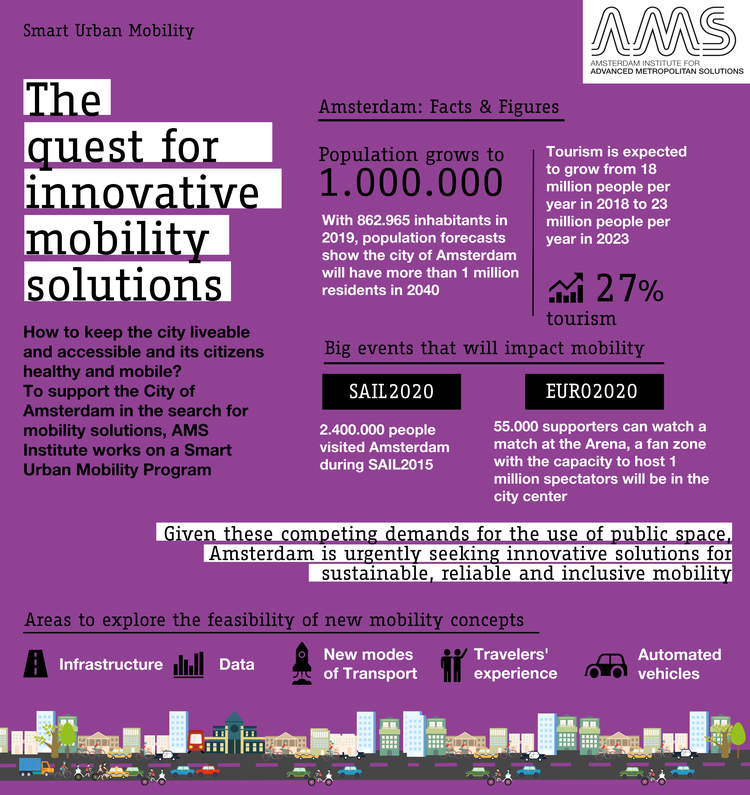
The number of people visiting, living and working in Amsterdam continues to rise and big events such as EURO2020 and SAIL2020 will have a significant impact on the city.
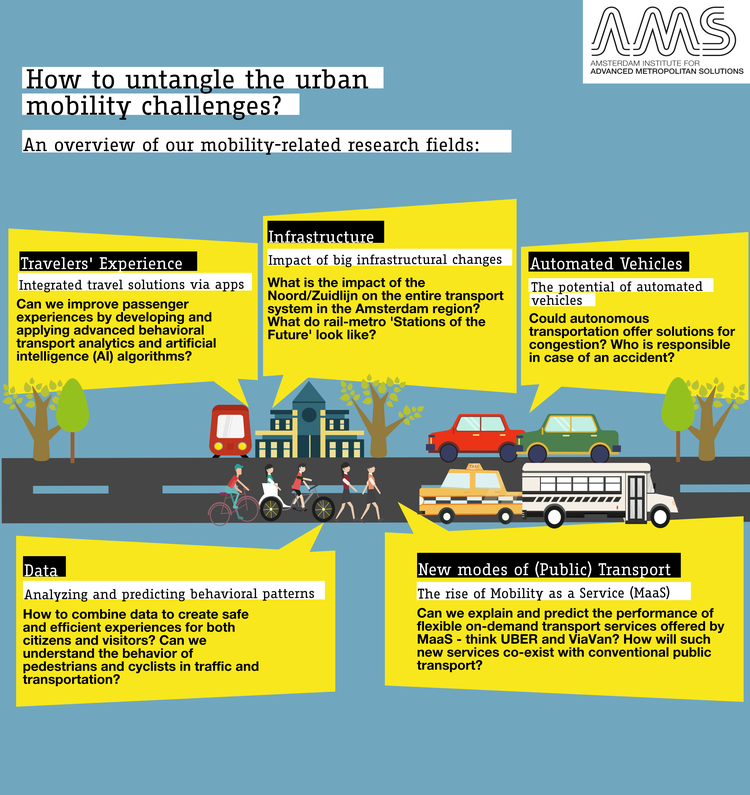
With our Smart Urban Mobility projects, among others exploring the implementation of autonomous vehicles like Roboat and Olli or the impact of the Noord-Zuid lijn, we aim to keep the city liveable and accessible.
Principal Investigators
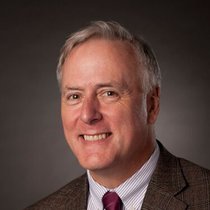
Andrew Whittle
Massachusetts Institute of Technology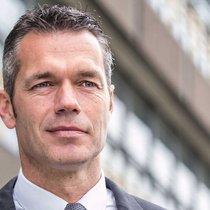
Serge Hoogendoorn
TU Delft
Claudio Roncoli
Aalto University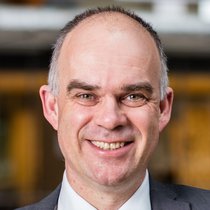
Bart van Arem
TU Delft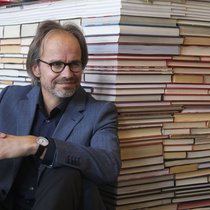
Arjan van Timmeren
TU Delft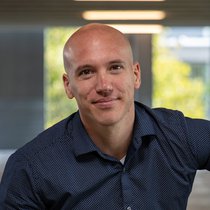
Oded Cats
TU Delft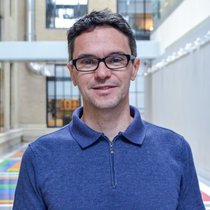
Fábio Duarte
Massachusetts Institute of Technology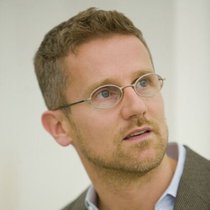
Carlo Ratti
Massachusetts Institute of Technology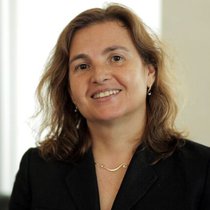
Daniela Rus
Massachusetts Institute of TechnologyProject members
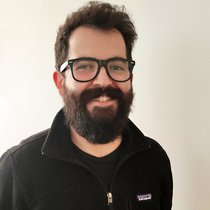
Jaime Soza-Parra
TU Delft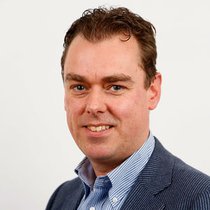
Niels van Oort
TU Delft
Michiel van Selm
AMS Institute, MIT Senseable City Lab
Bart van Arem
TU Delft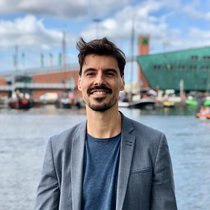
Caspar Egas
AMS Institute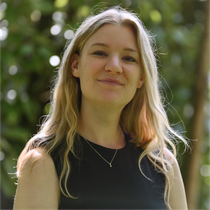
Isabelle Snaauw
AMS Institute
Serge Hoogendoorn
TU Delft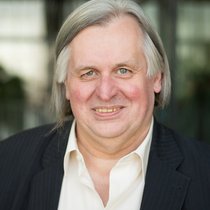
Prof. Dr. Harry Timmermans
Eindhoven University of Technology
Guy Vincent
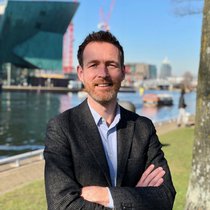
Stephan van Dijk
AMS Institute
Tom Kuipers
AMS Institute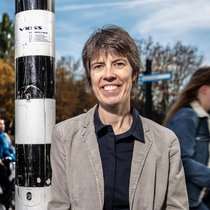
Winnie Daamen
TU Delft
Rens Doornbusch
AMS Institute
Oded Cats
TU Delft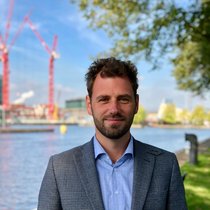
Thijs Turèl
AMS Institute
Carlo Ratti
Massachusetts Institute of Technology
Daniela Rus
Massachusetts Institute of Technology
Andrew Whittle
Massachusetts Institute of Technology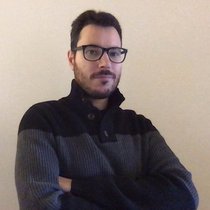
Marco Rinaldi
AMS Institute, TU Delft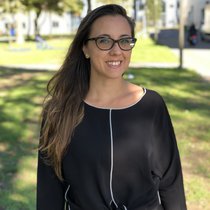
Manuela Triggianese
TU Delft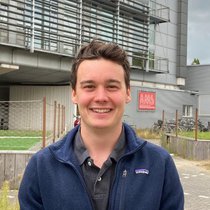
Titus Venverloo
AMS Institute, TU Delft, Massachusetts Institute of Technology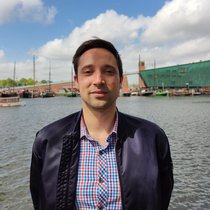
Petar Koljensic
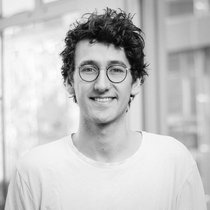
Jonathan Klein Schiphorst
AMS Institute
Fábio Duarte
Massachusetts Institute of Technology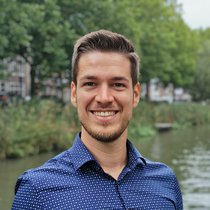
Sander Oudbier
AMS Institute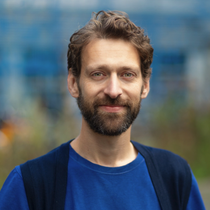
Linus Knupfer
AMS Institute
Juanita Devis Clavijo
AMS Institute
Arjan van Timmeren
TU Delft
Marc- Edouard Schultheiss
Swiss National Science Foundation / MIT / AMS Institute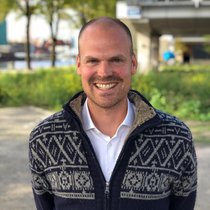
Ynse Hendrik Deinema
AMS InstituteView
everything
projects
news
events
everything
on this theme
projects
news
events
everything
